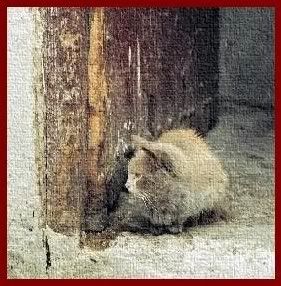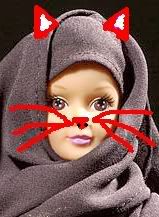The Pantheon Welcomes Another
 Does it seem slightly skewed in a world where children are blown up by landmines and die of AIDS to mourn the passing of a 94-year old man? Perhaps, but I confess to reading of Nobel prize winner Naguib Mahfouz's death today with profound sadness. Another personal god of mine has left this world to join my pantheon of much-loved & departed writers.
Does it seem slightly skewed in a world where children are blown up by landmines and die of AIDS to mourn the passing of a 94-year old man? Perhaps, but I confess to reading of Nobel prize winner Naguib Mahfouz's death today with profound sadness. Another personal god of mine has left this world to join my pantheon of much-loved & departed writers.Children of Gebelawi (or Children of the Alley) (1959), one of Mahfouz's best known works, has been banned in Egypt for alleged blasphemy over its allegorical portrayal of God and the monotheistic Abrahamic faiths of Judaism, Christianity & Islam. In 1989, after the fatwa for apostasy against Salman Rushdie, a blind Egyptian theologian, Omar Abdul-Rahman (Osama Bin Laden's pal ~ CinR), told a journalist that if Mahfouz had been punished for writing this novel, Rushdie would not have dared publish his. Sheikh Omar has always maintained that this was not a fatwa, but in 1994 Islamic extremists, believing that it had been one, attempted to assassinate the 82-year-old novelist, stabbing him in the neck outside his Cairo home. He survived and lived afterward under constant bodyguard protection.
Mahfouz was the first Arab writer to receive the Noble laureate in Literature and, until today, was its oldest living recipient. A prolific writer (over 30 titles to his name), he wrote of stark poverty and ignorance, the place of the supernatural and spiritual in a traditional Muslim society, and the hopes and dreams of heroes and anti-heroes alike - set before the backdrop of Cairo's overcrowded alleys with their attendant sights and sounds and smells. *Sigh* At least he'll have good company among those literary gods who preceded him.








2 Comments:
Happy Blogday! I'm participating in the second annual Blogday festivities. Participants break out of their normal blog-reading ways and search out five new blogs.
You were one of the lucky five. Your blog is very well-written and I've enjoyed reading it. You can read my "review" of your blog at: http://forthelongrun.blogspot.com.
I prefer Rushdie's earlier work. You should check out A View From Fez' report of Mahfouz' funeral:
http://riadzany.blogspot.com/2006/09/literary-world-mourns-naguib-mahfouz.html#links
Post a Comment
<< Home